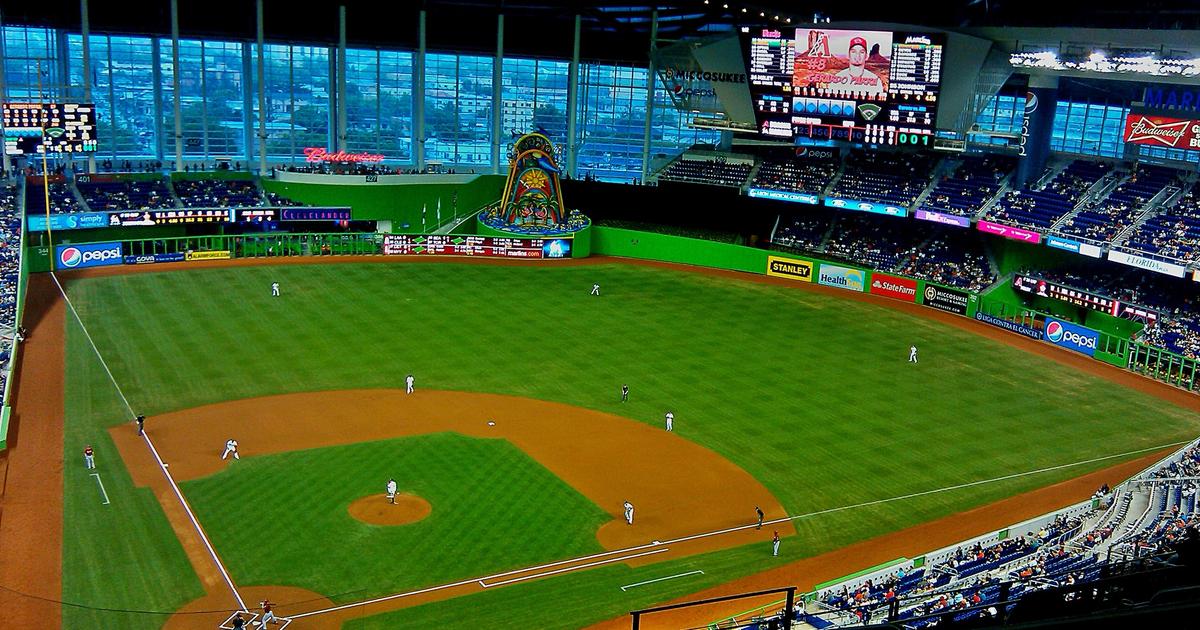(Photo credit: Roberto Coquis)
On Friday, February 16, Douglas Hanks of the Miami Herald reported that Miami-Dade County sued the Miami Marlins, former owner Jeffrey Loria and the current ownership group led by Bruce Sherman. At issue is the sale of the team and the amount of profit that Loria took from the sale.
A statement from the face of the Marlins' current ownership, former MLB player Derek Jeter, asserts their position that the dispute should be between Loria and the county. Jeter explained that the agreement made with Loria puts the responsibility of this litigation on him.
Loria has much to answer for in this suit but the Sherman group is guilty even if just by complicity.
The case
In a report delivered to the county commission, Loria lays out his argument that instead of profiting from the $1.2 billion sale of the Marlins, he took a $140 million loss. In the original deal that put taxpayers in the city of Miami and Miami-Dade County on the hook for most of the cost of the construction of Marlins Park, the city and county became entitled to a combined five percent of the profit of any sale of the team if the transaction occurred before 2019.
As Loria is reporting a loss on the deal, he isn't writing a check to either the city or the county. Loria depends on several accounting conveniences to make his case.
In the suit, the county is contesting Loria's valuation of the team. The suit also calls into question debt that Loria says he paid out of the sale proceeds.
Much of that debt was paid to other companies that Loria owns as interest on loans. During his time as owner, other ventures owned by Loria loaned money to the Marlins at Loria's direction. The question begs to be asked: does Loria draw a salary from these businesses? If so, then part of that salary is profit off the sale of the Marlins.
Even more egregious is that Loria hasn't acted consistently with his own evaluation of the sale. Tallwood Associates received a $30 million payment as a percentage of the profit off the sale of the Marlins. The financial firm was promised a similar five percent take of the profit as the city and county were. That $30 million means that the math in that calculation put Loria's profit off the sale at $600 million as opposed to a $140 million loss.
That's what Loria will be challenged on if this suit goes to trial. The Sherman group has similar questions to answer.
The Sherman group
Jeter claims the terms of the transaction shield them from legal liability in this case and the language of the sale contract may ultimately prove that to be true. However, they still were involved in the sale of the Marlins.
The Sherman group was a party to the negotiations on every detail of the sale, including the debt that went to Loria's front businesses and the $30 million payment to Tallwood. They can claim immunity but not ignorance.
Since the sale was completed, the Sherman group has only reinforced Loria's valuation of the team. Marlins Park, which taxpayers will ironically pay the same $1.2 billion that the team sold for in bonds and interest on, is still without a naming rights partner despite Jeter's insistence that was a priority. The latest payroll purge, leaving the team void of the best talent and biggest ticket draws, were on the roster when the Sherman group took over, helping Loria's case.
It's uncertain right now whether this suit will go to trial, if the Sherman group will continue to be listed among the defendants if it does, and whether the county will convince a judge that Loria's account is faulty. Loria could still write a check and make this all go away.
Then again, so could the Sherman group. Giving the taxpayers some return on their investment could be an olive branch that would help mend the broken relationship between the Marlins and the people who they would like to call their fans.
How will this case end? Let us know what you think in the comments.
Explore new topics and discover content that's right for you!
MLB The Show



